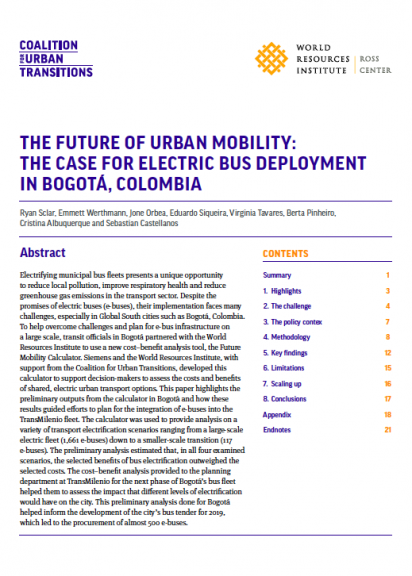The Future of Urban Mobility: The case for electric bus deployment in Bogotá, Colombia


Public transport officials in Bogotá, Colombia used an innovative planning tool to inform the electrification of their municipal bus fleet. This paper explores the city’s experience, and highlights lessons relevant for other governments looking to deploy electric buses.
Globally, the transport sector is responsible for a significant and growing proportion of greenhouse gas emissions. Within the sector, and on a per-vehicle basis, public transport fleets account for a disproportionate amount of emissions – especially in the Global South, where older and less efficient transport vehicles are common.
Electric vehicles, with zero tailpipe emissions, are emerging as an option with serious potential for reducing local and global emissions; electrifying municipal bus fleets presents an unique opportunity to reduce local pollution, improve respiratory health and reduce greenhouse gas emissions in the transport sector. In Bogotá, Colombia, public transport officials used a planning tool — the Future Mobility Calculator — in collaboration with the World Resources Institute to assess the impact that different levels of electrification would have on the city.
This paper explores the preliminary outputs from the calculator, and how these were used in planning. Additionally, it highlights lessons from Bogotá’s experience relevant for other governments looking to deploy electric buses at a greater scale.
This paper was created in partnership with the WRI Ross Center for Sustainable Cities.